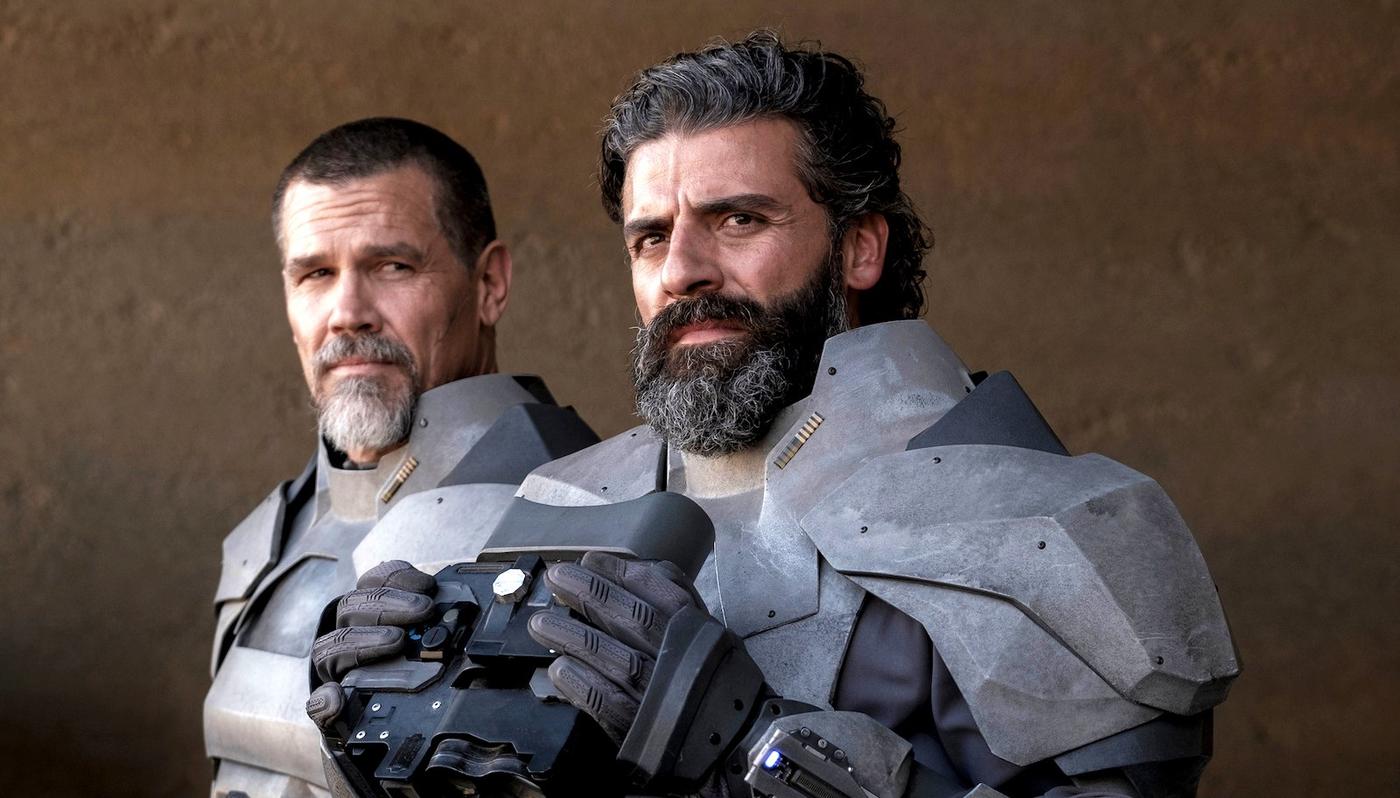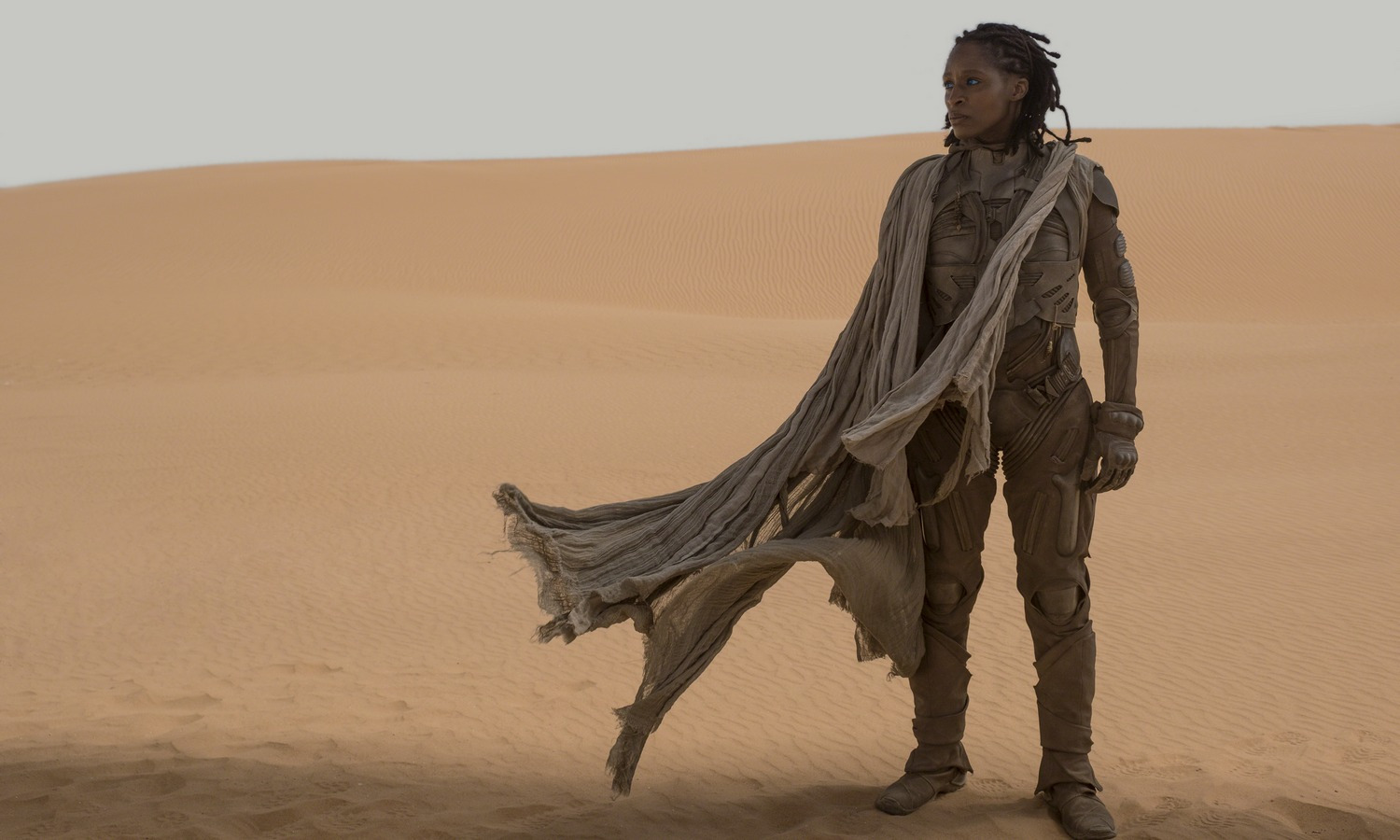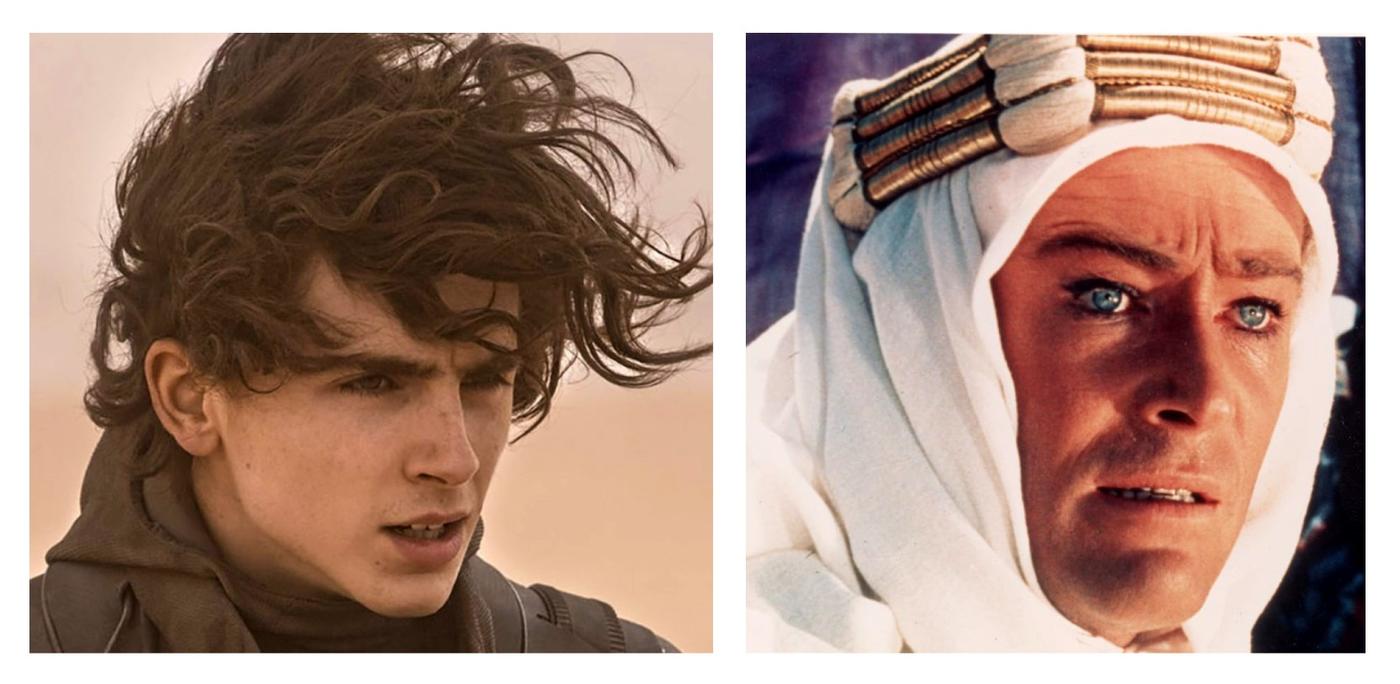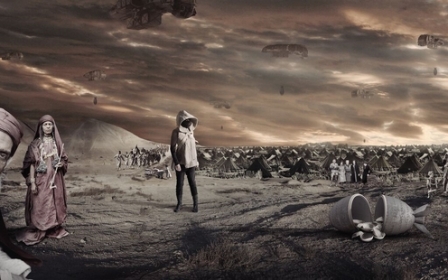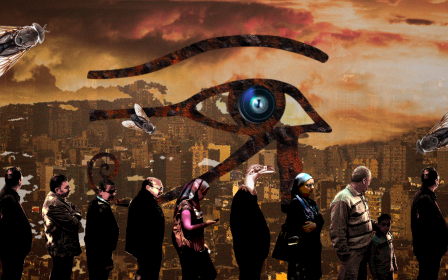Dune and the Arab world: How the interstellar epic avoids Middle East cliches

Editor’s note: This review contains spoilers for the novel Dune.
Long before 9/11 forced the Middle East and Islam to the forefront of western popular culture there was Dune, Frank Herbert’s hugely influential and important 1965 sci-fi book which ranks among the early American attempts to offer a serious treatment of the region.
The far-future fable focuses on Arrakis, a pillaged desert planet which is the only source of melange (or spice), the universe’s most valuable substance. It is also populated by dark-skinned Fremen, who resemble Bedouins. The allusions to the Middle East are unmistakable, especially as the novel came on the heels of the oil boom in the Gulf states.
There have previously been adaptations of the novel on both film (David Lynch in 1984) and TV (John Harrison in 2000 and 2003). There was also an aborted attempt by film-maker Alejandro Jodorowsky to bring the novel to the big screen in the mid-1970s, which while it never happened, part-inspired the likes of Star Wars, The Fifth Element and Alien among others. The latest version, from Canadian visionary director Denis Villeneuve (Arrival, Blade Runner 2049) is the most ambitious yet.
There was a small outcry when the cast for this $165m adaptation was announced, with no Middle Eastern actors in any major role. Many again feared that the Fremen would be predominantly white actors, disguising the key racial differences that Herbert underscored in his book.
But objections regarding the lack of Middle Eastern or Muslim actors are unfounded.
Villeneuve’s choice to cast actors of colour as the Fremen - especially Zendaya and Babs Olusanmokun - makes a difference, bringing the book’s implicit politics to the surface and setting the stage for the novel’s core themes. He also avoids many of the racial and political gaffes that tainted previous adaptations.
Although this version of Dune rights various past wrongs, its politics remain hazy, as is typical of mega Hollywood productions of its ilk, and its allegorical dimension is not as underlined as one hoped it would be.
In fairness, it does not pretend nor aspire to be an enlightening study of the West’s relationship with the Middle East and its former colonies. Audiences expecting references to the region will be disappointed. Yet there is enough food for thought here to render its implied position towards the Middle East as refreshingly singular.
And as an adventure epic, Dune - shot in Wadi Rum, Jordan and Abu Dhabi among others - is one of the niftiest, most gorgeously photographed US blockbusters of recent years; an often exhilarating, unsentimental swashbuckling action epic that makes similarly budgeted Marvel fare look like a soulless video game.
Dune, which premiered at the Venice Film Festival, has already opened in parts of Europe, as well as Saudi Arabia and the UAE. But its biggest test will be the US on 22 October, when it premieres simultaneously on streaming service HBO Max as part of distributor Warner Bros’ post-pandemic release strategy. It’s a move that has been criticised by critics and the industry alike since it may hamper the film’s box office revenues.
The film only covers the first half of the book (the opening credits declare this is “Part One”). Whether Villeneuve (who has said that watching Dune on TV is “to drive a speedboat in your bathtub”) can complete the story depends on its success at the box office and the green light from studio executives.
Masters of the universe
Both Dune the film and Dune the book open in the year 10,191, when the universe is controlled by quarreling noble houses, ruled over by the autocratic Padishah Emperor Shaddam IV who is determined to keep them in check.
Duke Leto (Oscar Isaac) is the genial leader of the House Atreides, an oceanic planet that appears to be relatively conflict-free.
In a sketchy move, the emperor appoints Leto as the new ruler of Arrakis, which until now has been controlled by the brutish House Harkonnen, arch rival of Atreides and led by the bloated, gravity-defying Baron Vladimir Harkonnen (Stellan Skarsgard).
Arrakis is home to melange or spice, the universe’s most valuable material, which not only enhances the human lifespan but, most importantly, facilitates intergalactic travel.
But its extraction, from the bottom of the desert, is a perilous affair, as the noisy mining rigs attract the planet’s sandworms - gargantuan monsters that sweep across the landscape and swallow anything in their way.
On arriving on Arrakis, Duke Leto and his family are soon betrayed. Leto’s young son Paul (Timothée Chalamet) and mother Lady Jessica (Rebecca Ferguson) are forced to fend for themselves against both the House Harkonnen and the Fremen, who value them more dead for their body liquid - essential for survival - than for any political manoeuvres.
But Paul is believed by many of the Fremen to be the Muad'Dib - the Messiah who is prophesised to liberate Arrakis and lead it to defeat its occupiers and rivals.
Strength through faith
Herbert’s treatment of the Middle East through Dune has been extensively analysed for the past half-century. One camp regard it as an incisive criticism of western imperialism and a celebration of the resilient Middle Eastern spirit; another camp deem it as yet another stereotypical endorsement of the white saviour myth that reduces the region into a barren wasteland inhabited by uncivilised brutes.
The book’s genesis is rooted in a 1959 article that Herbert, then a journalist, filed about a US government experiment in Oregon to regulate the movement of sand by planting imported vegetation.
These ecological concerns animate the novel, as do several instrumental political events that shaped the late 50s and early 60s including the Cold War, the end of European colonisation and the rise of the oil-rich Gulf states as major political players. All these feed into a complex narrative which does not conceal its allegorical colours.
Dune has also been compared to Lawrence of Arabia, which was also filmed in Wadi Rum, with Paul Atreides thought to have been fashioned after TE Lawrence (1888-1935), the British officer who united the Arab forces against Ottoman Empire rule during World War One.
While the analogies between Dune and the Middle East are obvious, augmented by the Arabic-sounding names and phrases, there’s nothing in Herbert’s text which explicitly references the region or its history. And although the story is laced with Sufi leanings, Zen Buddhism figures heavily as well (Herbert was a Buddhist convert from Catholicism).
As further books in the series reveal, Herbert imagines the future religion as a polymorphic entity shaped by different sensibilities and thoughts.
Both Herbert and Villeneuve draw a distinction between the mysticism of Arrakis and the Fremen and the rigidness and dogma of the Bene Gesserit - an influential Jesuit-like female-dominated religious discipline to which Lady Jessica belongs and through which Paul is groomed to be the new Messiah.
In the book, if less so in Villeneuve’s adaptation, organised religion is treated with scepticism and antagonism - a corrupting force that deprives humans of choice and free will.
The messiah complex
Villeneuve is no stranger to Middle Eastern themes. His 2010 breakout hit, the Oscar-nominated Incendies, based on a play by Lebanese-Canadian writer Wajdi Mouawad, is a melodrama set in an unnamed Middle Eastern country and heavily inspired by the Lebanese Civil War.
One of the most visionary filmmakers of his generation, he is too shrewd to deliver yet another white messiah yarn. Chalamet’s Paul is essentially a young cub; his impressive sword skills and quasi-supernatural powers masks swathes of loss and confusion.
His white messiah is no longer the saviour of the desert-dwellers: he is no more than a vehicle, an instrument, for the Fremen to attain what is theirs.
Villeneuve’s adaptation can sometimes feel stuck on the white messiah complex - but that’s more due to the film’s structure and not its intent.
With Dune clocking in at 155 minutes, Villeneuve takes ample time in establishing its universe, explaining the relationships between the different houses, the broad web of power play within the galaxies, and the myriad characters and their positions within the story.
This extensive, patience-testing set-up - formulated as a Byzantine political drama - takes up the film’s first half, giving little space for Villeneuve to dig into Herbert’s ideas, squeezing in the mandatory, if admittedly spectacular and dramatically fitting, action sequences.
Possibly it’s unfair, even unsound, to make a final judgement on the film due to its naturally truncated conclusion. But as it stands though, the politics of the story come off as muddled and thorny.
Without knowing the fate of Arrakis and Paul, the current Dune appears no different from Lawrence of Arabia (1962): the story of a proud if uncivilised people born in a coarse if rich terrain who await a white messiah to grant them the peace and freedom that colonising forces have long denied.
The Fremen are given limited screen space of their own, which means that they come over as savage but noble; resourceful but primitive - the stereotype the West has held of the Middle East for too long.
Marvel at the world building
But then Dune is an allegory for colonisation. The stagnant, destitute state of Arrakis is attributed to the cannibalistic occupying forces who, with their addiction and full dependence on spice, have perpetually denied the Fremen not only self-determination but also self-actualisation.
In that sense, the first Dune bears some resemblance to Ryan Coogler’s Black Panther (2018) - the Marvel Comics story of a rich African nation whose prosperity was achieved by hiding away from western forces and pretending to be a poor African country.
Yet the scope and depth of Dune is more far-reaching.
Later in the books (SPOILER ALERT!), the Bene Gesserit’s long-held prophecy of Paul comes true but he is then used by them to gain political power in a subplot that illustrates how the corrupting use of religion can manipulate the masses.
Paul predictably is revealed as Muad'Dib, a role he later shuns and with which he becomes disillusioned. For the Fremen, freedom and progress come through the transformation of Arrakis into a green world of vegetation, but at the cost of their identity.
Thus while the Dune saga starts as an allegory for colonisation, it ends as a warning against man-made ecological development and the danger of inherited myths.
Herbert’s book is far more cynical, far more thematically complex, far less heroic than Villeneuve’s introductory chapter may suggest.
Whether the director will be allowed to realise the end of that saga depends on the forces of an unstable market increasingly catering for the lowest common dominator and where intelligent blockbusters such as Dune are the exception and not the rule.
This article is available in French on Middle East Eye French edition.
Middle East Eye propose une couverture et une analyse indépendantes et incomparables du Moyen-Orient, de l’Afrique du Nord et d’autres régions du monde. Pour en savoir plus sur la reprise de ce contenu et les frais qui s’appliquent, veuillez remplir ce formulaire [en anglais]. Pour en savoir plus sur MEE, cliquez ici [en anglais].


